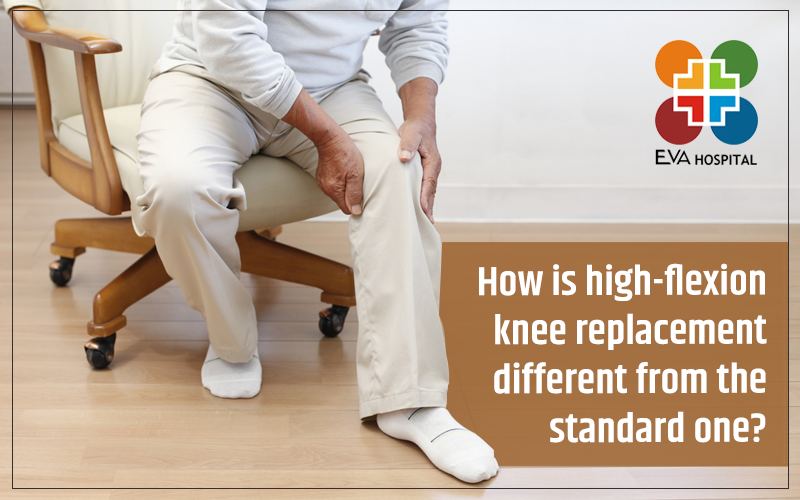
Expectation Before and After Joint Replacement Surgery?
‘As active as squirrel’ or ‘fit as a fiddle’ was your nickname a couple of months ago. But with a sudden jerk, push, weight lift, or age and osteoporosis, you find yourself incapacitated with acute pain. This unexpected jerk or sports injury has led to unbearable traumatic pain.
You may find yourself in a lurch while doing the basic daily chores or walking up the stairs with the constant aches in the joints. A locked or damaged knee, frozen shoulder, damaged hip joints can be stressful physically and mentally.
If you are considering joint replacement surgery or have been referred to a specialist for the same, this blog is for you. Orthopedic joint surgery is a common and safe surgery as it has evolved over the years. Joint replacement surgery has become minimally invasive surgery and you can be sure to be back in action within a short time.
“The patients who get a joint replacement surgery feel as if they have started a new birth, a new pain-free life where they can resume their favorite game and be independent in their daily life chores,” advocates the best orthopedic surgeon of Punjab, Dr. TanveerBhutani, EVA Hospital, Ludhiana. He assures that any joint replacement surgery can lead to a new life for patients.
What to Expect Before a Joint Replacement Surgery?
The quality of the ingredients decides the fate of the final recipe. Likewise, if you are fit before the surgery, you may expect to recover in a short span of six weeks. Dr. Tanveer Bhutani says if you are overweight or succumbed to a sedentary lifestyle, you may come back to your routine activities after three months post the joint replacement surgery. So the pre-operative period is of prime importance in preparing your body, mind, and home for the post-surgery period.
Dr. Tanveer Bhutani has a comprehensive checklist for his patients to be ticked before the surgery where he makes sure each patient understands the insurance coverage, the testing, and the surgical procedure, and makes adequate preparations needed in the rehabilitation phase. Here are a few points you must ponder on before the surgery:
-
Health and Nutrition
As soon as you understand that there is a problem in the joints or if you have got a joint replacement surgery booked, make sure you eat well according to the diet specified/recommended by the orthopedic. What goes in the body determines the strength and fitness of the body. You must eat light meals frequently and focus on maintaining a well-hydrated body. Include fibrous foods and nutritious foods mainly fresh, green vegetables, and fruits in the diet.
For any orthopedic surgery eating foods rich in vitamins, minerals and proteins are quintessential for a timely recovery. Bones are made of calcium and to enhance the strength of bones, your orthopedic will determine the amount of calcium going in your body through power-packed foods like milk, cheese, yogurt, dark green leafy vegetables, raisins, and prunes.
-
Exercise and Wellness
You hear from childhood that exercise is important for the body. Now that you have an impending surgery, it becomes imperative to exercise in whatever ways possible- yoga, walking, swimming, or anything specific recommended by the orthopedic.
Exercise will improve endurance, muscle strength, and improve the range of motion. With limited physical capacity due to pain, you must seek the orthopedic’s advice and devise an exercise regime. The doctor may recommend strengthening exercises for hip or joint recovery; walking for overall strength and flexibility and even upper body conditioning exercises which can help in reducing muscle soreness and fatigue that can be caused by the use of a cane or other walking aids.
-
Avoid the Don’ts
Smoking and alcohol consumption are the first and foremost prohibitions. Smoking interferes with the process of recovery, increases medical complications, and enhances the chances of blood clots in the body. Confide in your surgeon the level of smoking and drinking you are addicted to.
Managing blood sugar before the surgery is very important. So avoid all sugary foods and fats so that blood glucose is under control at all times. Stress and the process of surgery may affect the blood sugars in the body, so avoid any activity or food that aggravates or stimulates the blood glucose before the surgery.
Dr. Bhutani strongly recommends that you must avoid taking any anti-inflammatory medicines or pain killers and blood-thinning medicines before the surgery. Blood-thinning medicines can interfere with the clotting and bleeding during the surgery and the recovery may be delayed. You must seek your surgeon’s permission if at all you need to take any of these medicines.
-
Home Safety Preparations
The weeks before the surgery are of prime significance as you make specific homecoming preparations for the post-surgery phase. Right from arranging help to drive you home, to someone who can take care of your house and kids for two weeks or more till you are independent enough to take care of the chores, the preparation can be a lot more intensive. You may have to stock some prepared food and a lot of groceries so that your recovery period is hassle-free.
Depending on the nature of the surgery you have to prepare your bathroom sittings (elevated commode, grab bar at the shower area, shower chair, etc.) and make the rooms cluster free. Also, you must keep all the daily use items like medicine baskets and remote controls at arm’s length so that you can get them without assistance.
Also read: How can you prepare for hip replacement surgery?
What to expect After the Joint Replacement Surgery?
After the surgery and analyzing your vital signs and progress, you must have someone to drive you back home after the hospital discharge. The hospital discharge varies from patient to patient depending on their medical condition and the level of pain.
While at home, the recovery at home is a gradual process. Pain, stiffness, and swelling may bother you and you must seek the surgeon’s advice on the medications post-surgery. Physiotherapy or physical therapy is a mandatory treatment after the surgery so that the joints are less stiff and can gain momentum easily.
Must read: What are the benefits of knee replacement surgery?
The surgeon will hand over a list of dos and don’ts and you must be cautious in the post-surgery phase as the rehabilitation phase marks the success parameter of the surgery. You must learn to take care of your incision dressings and must save the next appointment date in your calendar.
The surgeon will apprise you of the diet, level of physical and sexual activity as well as the recommended physical therapy exercises.
Over to You
Joint replacement surgery is a life-changing phenomenon. You will breathe a ray of hope and optimism once you recover your daily chores without external aid and without screeching pain. Do not hesitate to book an appointment with the best orthopedic of Punjab, Dr. TanveerBhutani at EVA Hospital, and seek guidance about your excruciating pain.
Seek help regarding the replacement surgery and chalk out a pre and post-surgery list of activities so that you are not caught off-guard at any stage. Live life stress-free and bid adieu to the pain with the help of modern medical techniques.









